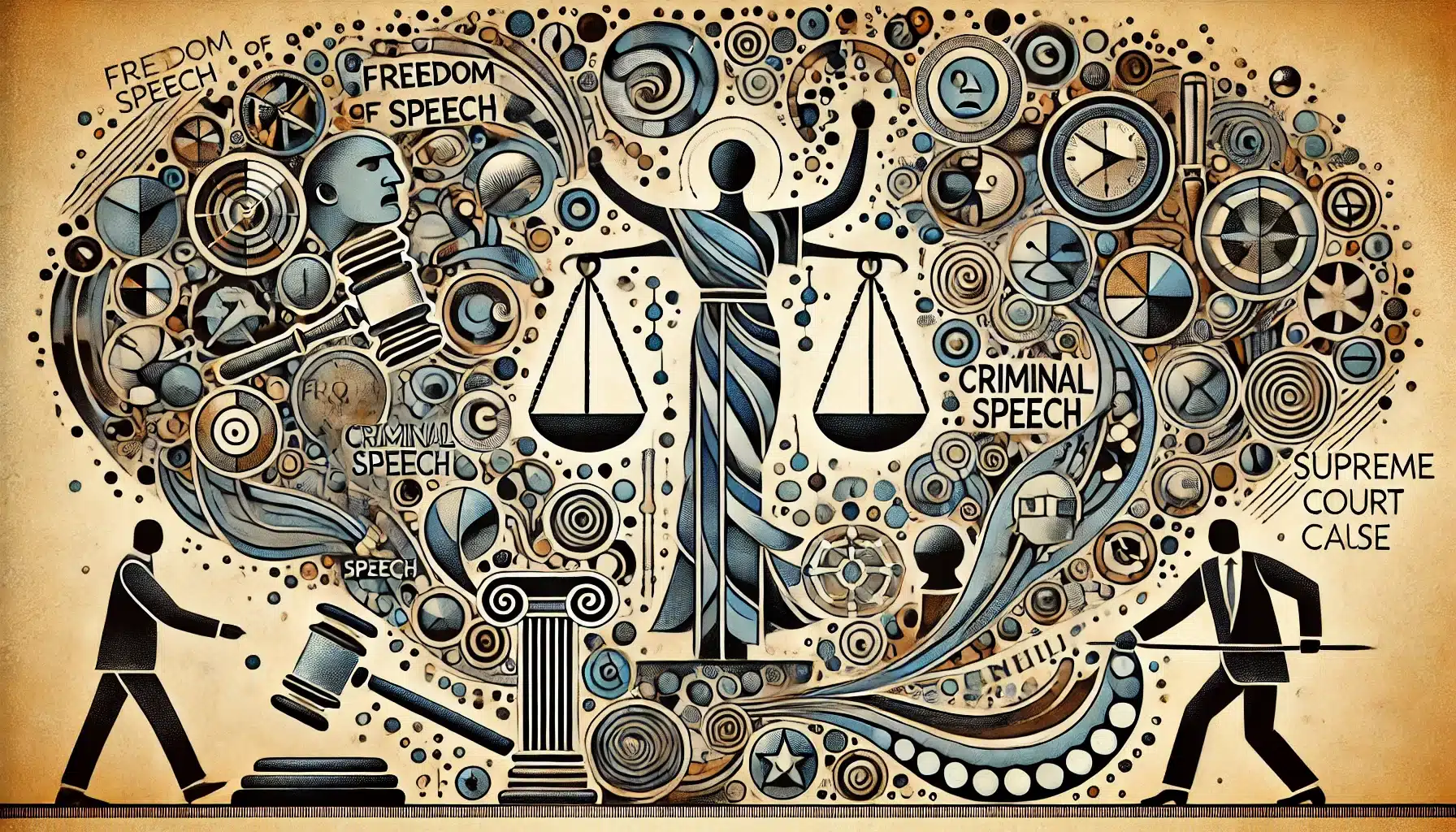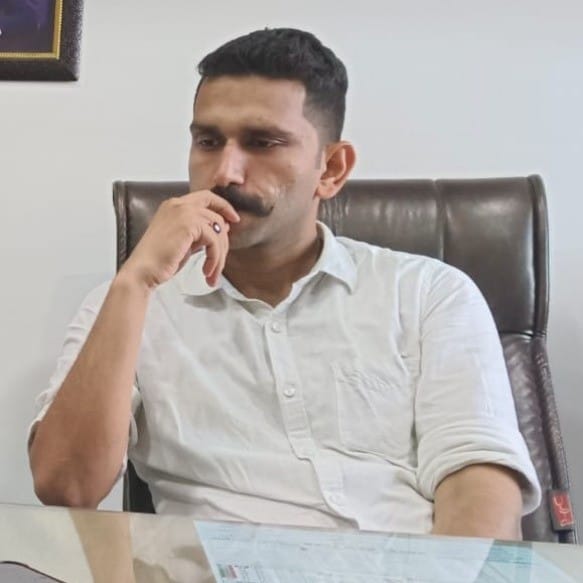In S. Khushboo v. Kanniammal and Anr., the Supreme Court of India, upheld the freedom of speech and expression by dismissing multiple criminal defamation suits against actress Khushboo for her remarks on pre-marital sex. The court emphasized that expressing opinions on societal issues is protected u

AI that prepares briefs and compliance checklists
Citation: (2010) 5 SCC 600
Date of Judgment: 28th April, 2010
Court: Supreme Court of India
Bench: K.G. Balakrishnan (CJI), Deepak Verma (J), Dr. B.S. Chauhan (J)
Facts
- In September 2005, ‘India Today’ a news magazine had conducted a survey on the subject of the sexual habits of people residing in the bigger cities of India. One of the issues discussed as part of this survey was the increasing incidence of premarital sex.
- The appellant expressed her personal opinion wherein she had noted the increasing incidence of premarital sex, especially in the context of live-in relationships and called for the societal acceptance of the same. However, appellant had also qualified her remarks by observing that girls should take adequate precautions to prevent unwanted pregnancies and the transmission of venereal diseases.
- Subsequently, ‘Dhina Thanthi’, a Tamil daily published a news item on 24.9.2005 which quoted the appellant’s statement published in ‘India Today’. The publication of these statements in ‘India Today’ and ‘Dhina Thanthi’ drew criticism from several persons and criminal complaints were filed against the appellant under Sections 499, 500 and 505 of the Indian Penal Code, 1860 and Sections 4 and 6 of the Indecent Representation of Women (Prohibition) Act, 1986.
- The appellant approached the High Court of Madras to seek quashing of all the criminal proceedings instituted against her.
Decision of the High Court of Madras
The High Court refused to quash the proceedings by exercising its inherent powers under Section 482 Cr.PC and directed that all the criminal proceedings be consolidated and tried by the Chief Metropolitan Magistrate at Egmore, Chennai.
Decision of the Supreme Court
The Supreme Court held that various complaints filed against the appellant do not support or even draw a prima facie case for any of the statutory offences as alleged. Therefore, the appeals are allowed and impugned criminal proceedings are hereby quashed.
Key legal issues discussed
1. Does the high court have inherent power to quash the criminal proceedings?
Yes
Court referred to the State of Harrana & Ors. v. Ch. Bhajan Lal & Ors.,[1], in which two guidelines were provided for the inherent power of the high court to quash criminal proceddings;
- Where the allegations made in the First Information Report or the complaint, even if they are taken at their face value and accepted in their entirety do not prima facie constitute any offence or make out a case against the accused;
- Where a criminal proceeding is manifestly attended with mala fide and/or where the proceeding is maliciously instituted with an ulterior motive for wreaking vengeance on the accused and with a view to spite him due to private and personal grudge.
In M/s Medchl Chemicals & Pharma Ltd. v. M/s Biological E. Ltd. & Ors[2] also, court observed that a criminal complaint or a charge sheet can only be quashed by superior courts in exceptional circumstances, such as when the allegations in a complaint do not support a prima facie case for an offence.
So, courts have the competence to quash criminal proceedings pending before the subordinate courts. However, this power must be exercised sparingly and with caution.
2. Whether the appellant could be prosecuted under Indecent Representation of Women (Prohibition) Act, 1986?
No
The Act of 1986 was enacted to punish publishers and advertisers who knowingly disseminate materials that portray women in an indecent manner. However, in the present case the appellant has merely referred to the incidence of premarital sex in her statement which was published by a news magazine and subsequently reported in another periodical. Hence, it would defy logic to invoke the Act of 1986 to proceed against the appellant, who cannot be described as an ‘advertiser’ or ‘publisher’ by any means.
3. Whether the appellant could be prosecuted under Section 509 and Section 153A of Indian Penal Code, 1860?
No
Section 509 IPC criminalises a ‘word, gesture or act intended to insult the modesty of a woman’. To establish this offence it is necessary to show that the modesty of a particular woman or a readily identifiable group of women has been insulted by a spoken word, gesture or physical act. But complainants’ grievance was with the publication of what the appellant had stated in a written form.
Similarly, Section 153A IPC (‘promoting enmity between different groups etc.,’) have no application to the present case since the appellant was not speaking on behalf of one group and the content of her statement was not directed against any particular group either.
4. Whether the appellant remarks amount to obscenity under Section 292 of Indian Penal Code, 1860?
No
Making a reference to Ranjit D. Udeshi v. State of Maharashtra[3], court observed that what is to be considered is whether a class of persons, not an isolated case, into whose hands the book, article or story falls will suffer in their moral outlook or become depraved by reading it or might have impure and lecherous thoughts aroused in their minds. Merely a reference to sex cannot be considered obscene in the legal sense without examining the context of the reference.
In Samaresh Bose v. Amal Mitra[4] also, it was held that the content has to be understood from the reference of the author as what the author seeks to convey and whether what the author conveys has any literary and artistic value.
The appellant has merely referred to the increasing incidence of pre-marital sex and called for its societal acceptance. At no point of time the appellant described the sexual act or said anything that could arouse sexual desires in the mind of a reasonable and prudent reader. Furthermore, the statement has been made in the context of a survey which has touched on numerous aspects relating to the sexual habits of people in big cities. Even though this survey was not part of ·a literary or artistic work, it was published in a news magazine thereby serving the purpose of communicating certain ideas and opinions on the above-mentioned subject.
So, the statements published as part of the survey were not in the nature of obscene communications.
5. Whether the appellant’s remarks could reasonably amount to offence of defamation as defined under Section 499 of Indian Penal Code, 1860?
No
Section 499 IPC makes it clear that the accused must either intend to harm the reputation of a particular person or reasonably know that his/her conduct could cause such harm. There was neither any intent on part of the appellant to cause harm to the reputation of the complainants nor can we discern any actual harm done to their reputation. In short, both the elements i.e. mens rea and actus reus are missing.
Explanation 2 to Section 499 further states that ‘It may amount to defamation to make an imputation concerning a company or an association or collection of persons as such.’ The explanation is wide but in order to demonstrate the offence of defamation, such a collection of persons must be an identifiable body so that it is possible to say with precision that a group of particular persons, as distinguished from the rest of the community, stood defamed.
House of Lords in Knupffer v. London Express Newspaper Ltd.[5], held that it is an essential element of the cause of action for defamation that the words complained of should be published “of the complainant/plaintiff’. Where he is not named, the test would be whether the words would reasonably lead people acquainted with him to the conclusion that he was the person referred to. In the present case the statement of appellant in ‘India Today’ did not refer to any specific individual or group at all.
The task of the criminal law is to punish individuals merely for expressing unpopular views. The threshold for placing reasonable restrictions on the ‘freedom of speech and expression’ is indeed a very high one and there should be a presumption in favour of the accused in such cases.
6. Whether the complainants could at all be described as ‘aggrieved persons’ within the meaning of Section 199 Cr.PC with bona fide intention?
No
Most of the complainants were associated with the PMK, a political party which is active in the State of Tamil Nadu. This means that the impugned complaints have been filed with the intention of gaining undue political mileage.
There was no specific legal injury caused to any of the complainants since the appellant’s remarks were not directed at any individual or a readily identifiable group of people, so complainants cannot be properly described as ‘persons aggrieved’ within the meaning of Section 199(1)(b) Cr.PC. In M.S. Jayaraj v. Commissioner of Excise, Kerala & Ors.[6] court observed that,
“The ‘person aggrieved’ means a person who is wrongfully deprived of his entitlement which he is legally entitled to receive and it does not include any kind of disappointment or personal inconvenience. ‘Person aggrieved’ means a person who is injured or one who is adversely affected in a legal sense.”
In G. Narasimhan & Ors. v. T. V. Chokappa[7], also, the court examined Section 198 of the Code of Criminal Procedure, 1898 (analogous to Section 199 of the Cr.PC. 1973) and observed that the said provision laid down an exception to the general rule that a criminal complaint can be filed by anyone irrespective of whether he is an “aggrieved person” or not. But the provision permits only an “aggrieved person” to move the Court in case of defamation. If a Magistrate were to take cognizance of the offence of defamation on a complaint filed by one who is not an “aggrieved person”, the trial and conviction of an accused in such a case by the Magistrate would be void and illegal.
[1] AIR 1992 SC 604.
[2] AIR 2000 SC 1869.
[3] AIR 1965 SC 881.
[4] AIR 1986 SC 967.
[5] (1944) 1 ALL ER 495.
[6] (2000) 7 SCC 552.
[7] AIR 1972 SC 2609.



